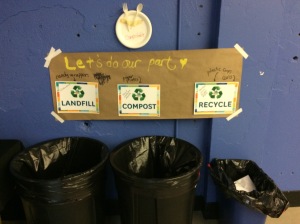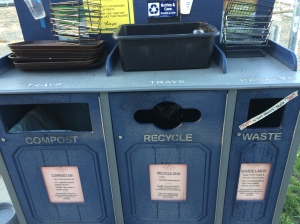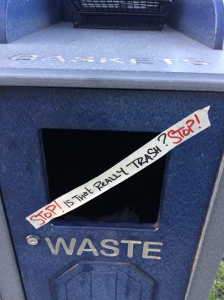It is easy when the product is labeled with a symbol -- although even then each community accepts different things and what they do and do not accept frequently changes. But so many products are not labeled at all. When I lived in St. Louis, the city's mantra was "if you can rip it, we can recycle it," but here, wrapping paper and frozen food boxes and foil-lined envelopes are no-nos.
At a recent conference, they got explicit with their signage to help people out and gave actual examples of where lunch items were to go. Then the next week I was at a school and even their "compostable" lunch containers were directed to go straight into the trash.

What lessons can you adopt from this for your organization? Having some uniform consistency is always helpful, but if not, being clear about the distinctions matters. Having a recycle bin is not enough if people inadvertently contaminate it or bypass it. Specificity counts in matters where there is confusion. And the effort to be clear and to keep things out of the landfill is worth it in the end!













